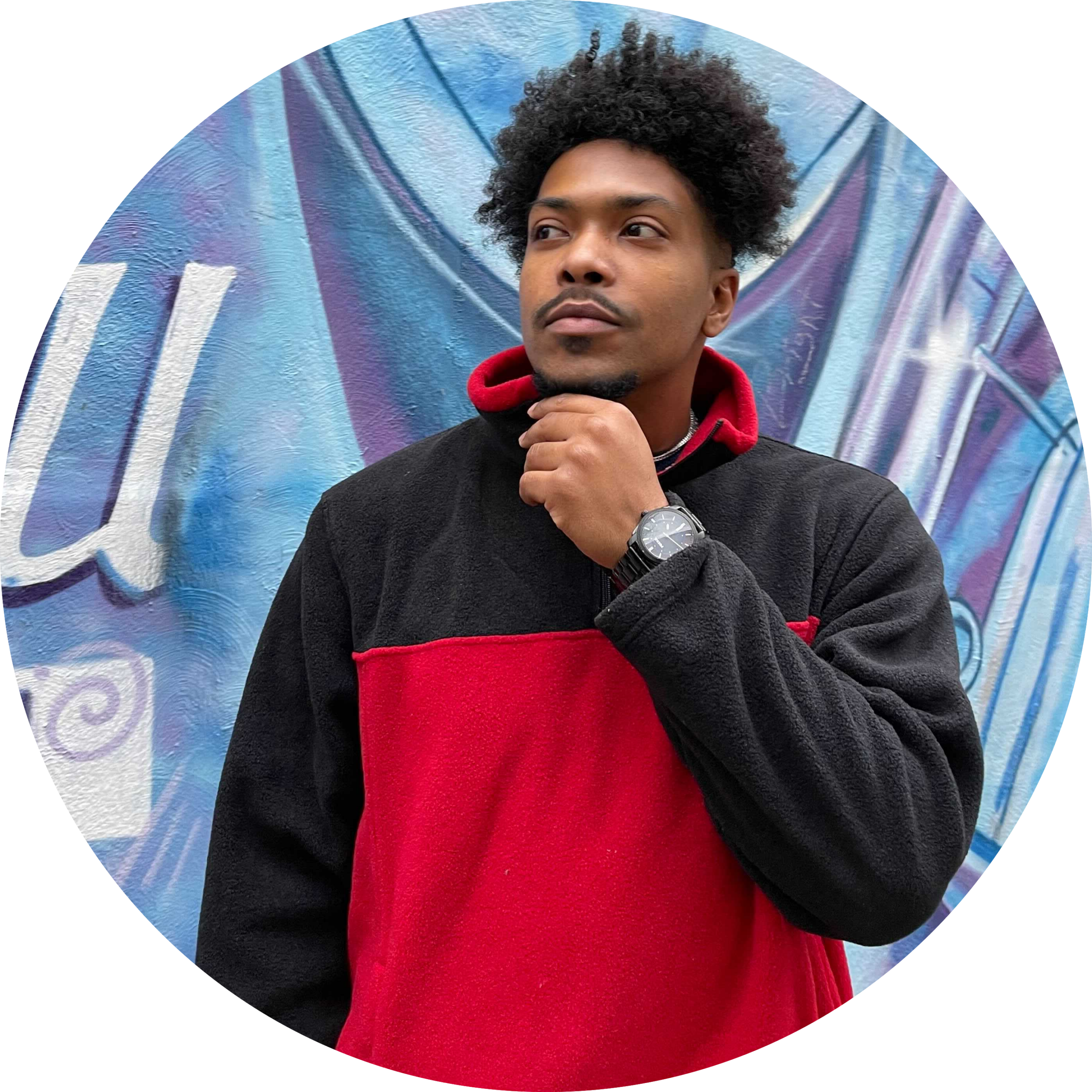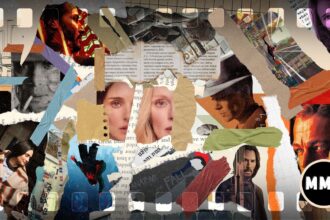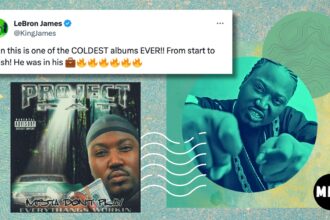“I use my job to engage empathy and compassion for people society might stereotype or ostracize.” —Michael K. Williams, 2015
Michael K. Williams was a gripping actor with stellar range, carrying every role armed with the conviction to sell water to a whale. His gangster roles were so astonishing and immersive you would forget he is an actor, which is exactly why his representations of what went down in specific avenues of the United States at specific time periods were, and are, so important.
No actor could play Chalky White like he did in Boardwalk Empire. No actor could play Red in Brooklyn’s Finest like he did, despite the minimal camera time. Last, and never least, what other actor could have grasped the complexity and multi-faceted character of Omar Little in HBO’s The Wire? Omar Little was Michael K. Williams’ breakout performance, finally allowing viewers to feel just how huge of a star he deserved to be. Let’s dig in.
***Spoilers ahead for The Wire***
Omar Little represented the pinnacle of West Baltimore’s day-to-day robbers and schemers. He was a man who challenged the status quo of the treacherous environment by offsetting ongoing drug empires, especially those that had a stronghold of fear and intimidation on the community. When police failed to slow business down in the criminal underworld, the “glitch in the matrix,” Omar independently saw to it to step up to the biggest and the baddest and go toe to toe with them, armed with the heart of a lion and the shotgun of Elmer Fudd.
Omar was not your average street thug, which is why he gets the respect he gets from fans of The Wire. He has his own moral code. It is this code that separated him from his peers; peers like Avon Barksdale who at one point ordered a mail carrier and a woman be killed for knowing too much of the Barksdale business, or Marlo Stanfield aka “Black” who killed a woman who he had relations with after discovering she was sent by his rival Avon as a “set up chick” to line Marlo up later on.
Meanwhile, Omar vowed to never put his gun on anybody that was not in “the game.” Let alone a woman.
Omar was beloved in the community because it never actually mattered to him what he was stealing. Whether it be a g-pack from a stash house or a couple bricks of raw at a drug deal. Most people in the game who are hitting licks like that would consider that shit to be a come-up. Not Omar. Omar loathed drug dealers, and we never really understood why. It was a part of the enigma. Omar made it his sole business to disrupt the hustle by any means necessary.
For Omar, it’s all in the game, but when it got personal, he was on your ass like a pair of Hanes. In one memorable and character crystalizing scene, Omar teamed up with the Nation of Islam’s top hitter from New York, Brother Mouzone, to find and kill Stringer Bell, the ringleader Avon Barksdale’s right-hand man;
Omar and Brother Mouzone found Stringer and his muscle discussing developing a piece of property with a businessman. Omar immediately smoked Stringer’s guard. Next came the opportunity to kill the man Stringer was discussing real estate with—an obvious witness—who Omar saw cowering, fearing for the end of his life, seeing a Black man with a big gun who just annihilated a man in front of him. Omar realized the man was nowhere near the game and left him, instead choosing to find and kill a fleeing Stringer, the intended target. Any other killer would’ve killed three birds with one shotgun shell instead of just two. No witnesses. No loose ends. Again, any other killer. Any other killer but good ol’ Omar. A man got to have a code.
Omar never had to flex in front of a crowd, or even brandish his weapons of death to anyone who was not going to feel the business end of them.
Despite the setting, Omar never cursed until he called Marlo a bitch near the end of the series, and even then it was only deployed to shock. Omar, despite all the fear on his name, was a soft and gentle man who enjoyed the company of other men. His enemies surreptitiously taunted him, referring to him as “the fa-word” for homosexuals behind his back, but could not have the opportunity to say it to his face. Call him all the fa’s you want, that man was dropping more bodies than a damn bungee cord.
Omar loved. Brandon, his lover, was viciously tortured and killed by the Barksdale boys in Season One, so Omar went to war with West Baltimore’s “finest” on his behalf. For his trusted associate Butchie, who faced the same end at the hands of Marlo’s crew, Omar had cars exploding in the street and drug revenue burned to a catfish crisp. Fuck the money and the dope. Omar loved.
Omar wanted to see you die from inside and out if you dared cross him by touching his people. Despite how loving and gentle he truly was, Omar was still a product of the environment and was taught painful lessons of the cost of having anyone close to him.
Omar looked like a mythic Greek god in the streets of Baltimore. We are talking about a guy whose name would ring out and grown-ass men would run to slam the apartment door behind them. A man who would make a run to the corner store in smooth silk pajamas and people were still shaking in their boots, warning; “OMAR COMING! YO! OMAR COMING!” He got mad that there were only regular Cheerios at the store instead of Honey Nut, (I’d be mad too) and on the way back with groceries came home with enough g-packs for rent to be good for the next two months at least. Respect was on his name. Fear from the corner boys as well.
The block hustlers knew not to dare step to the man unless their gun game was solid like Wee-Bey. Before being locked up for I don’t know how many murders under the orders of Avon, Wee-Bey was the only shooter through The Wire’s five seasons to put a bullet in Omar, after receiving one from him previously. I still say Omar is the biggest stepper in the show, but Wee-Bey wasn’t no slouch either. He managed to do what no street cat got close to doing.
Finally, at that same corner store where my man Omar was looking for them cheerios, he made another pitstop for a pack of cigarettes and got his dome blown off by a kid on the come up in Baltimore’s crew. Omar was shot at probably more times than any other character in The Wire. Poetically, no grown adult was able to finish him. This fueled the confidence he had in himself, his name, and his trigger finger. Armed .44’s, .45’s, and more shotguns than an NFL playbook, he never felt a reason to be too cautious because the people knew wassup.
You’d think he would go out in a blaze of glory but instead, a lil’ baby gangster crashed out and did it for the whole Westside.
Even when the man was gone, the legend of Omar went on. Marlo’s final scene ends with him testing the gangster of two corner thugs talking about Omar’s death that sounds like the end of a Quentin Tarantino flick instead of what actually happened.
You know the streets talk. And just like how the real The Wire lovers will always have that respect for the character of Omar Little, we will always love Michal K. Williams for blessing our eyes to bear witness to such an incredible performance that solidified the skill and integrity of a true actor. Michael K. Willaims embodied Omar Little with both a hardness and softness that is incredibly rare, beautiful, and ultimately supremely brave for the moment the character—and the actor—was born in.
Thank you Michael K. You are dearly missed and we cannot thank you enough. Peace.










